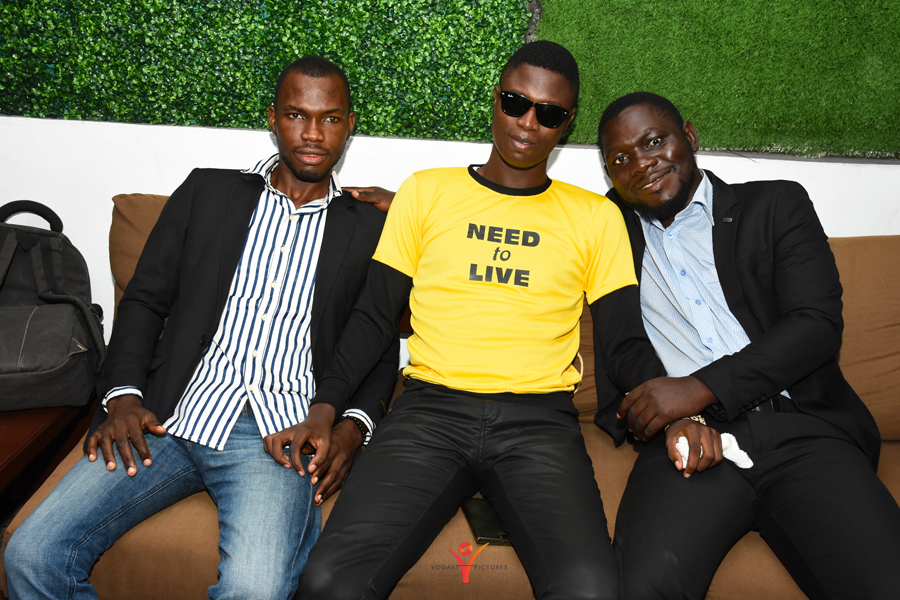These are some facts about me; and by extension, are applicable to many blind Nigerians.
1. The only time we feel doubly blind is in a situation where there is much noise around us, especially the deafening sound of machines and the blare of musical instruments or home theatres. Because we rely heavily on our ears for information about our environment, we often prefer not to have them fully engaged with sounds.
During my university days, we, the blind students, are usually disgruntled anytime the shops in the hostel put on their generator. We will even wish it didn’t come on, or the fuel drains quickly so it can go off. We kuku are not enemies of progress, it’s just that the sound from the generator renders us ignorant about the information we should have picked up with our ears.
In other words, the way you feel whenever you shut your eyes is the exact way we feel when we have loud sounds deafening our ears and we can’t hear other sounds around us. Many a time, it makes us lose our balance too, and we get confused on the right path to walk even when it’s something we’ve done without sight for decades.
2. We usually are not good with spellings, especially those of us who do not read braille. Modernisation has blessed us with assistive technologies that enable our computers and phones read to us. And because we simply listen while these gadgets read out things to us, we mostly get the pronunciation of the spoken words but miss out on the spellings, hence the decline in our spelling ability.
Imagine, I just got the correct spelling of “doughnut” in the past few months. Prior to then, I used to think it was “donut”. I need not remind you that while you all stumble across this spelling on labels, billboards, books or even on the banner hung on one topcorner of the doughnut shop, I only hear my computer pronounce it; unless I want to interrupt the computer’s reading to check the spelling, and which usually distorts the smooth flow of the computer’s recitation. And it can also be tiring, especially when there are too many words you want to learn their spelling. It’s something like having to frequently check the dictionary whenever you’re reading Wole Soyinka’s books.
So, more often than not, we enjoy the computer reading to us and disregard the spelling of the unfamiliar words.
3. At home, I’m usually served with a dish or bowl. Ceramic, unbreakable plates with flat container are not for me. You know, I eat big at home, and when such food is served in a flat-bowled plate, some of the food accidentally spills off the rim of the plate at each scooping, thus making me appear like a toddler after the meal. Look here, I’m 28 years old, and it’s embarrassing when someone has to always pick the floor of where I’d eaten, so I kukuma made peace with my big round deep dish which requires me to throw my spoon some inches down the container before reaching the food.
Well, I comport myself at public restaurants and friends’ house. Besides, food served at these places are usually not much, it’s either I can’t afford to full my plate or my friend is a poor one whom had only managed to cook one cup of rice for me, so the flatplate is often not full to the edge and I can eat with it without littering the table with grains.
4. Some of us, especially those who were born blind, don’t know how to walk fashionably. This usually is due to the fact that while growing up, they didn’t have the opportunity to witness how people walk. They couldn’t see the systematic way their folks and passers-by carry and dropp legs, hence their ignorance of how to do the stylish steppings. Some blind folks who forced themselves into walking in a particular supposedly elegant way ended up being perceived as an inbecile by onlookers.
See my guy na, he twists his legs while walking and throws his head back and forth. Ask him what the problem is and he’ll tell you he’s walking majestically.
Meanwhile, the above is not applicable to all those that were born without sight. Few of them, miraculously, walk perfectly.
Following the same theory; for me, what I don’t know how to do is ‘dance’. I can only shake like a lily blown by the sea breeze. I can’t see people do these dances, so I’m so uninformed about their steppings. And while many blind Nigerians are poor like me in dancing, there are some who, inexplicably, can dance very well.
5. In our blind state, we don’t see darkness. Oh mai, how best do I explain this? Ok. You see, I’m blind; meaning I can’t see anything, but the world is not appearing dark to me. What I’m left with is not the pitch black. It’s more of a world painted in ash. And sometimes, the colour becomes mysterious. There seldom are sparkles of colours too in the blind world, especially when our eyes are hit.
Honestly, I don’t know how to better explain this to you. Just bear it in mind that the default colour of blindness is not always black, it can also be ash with floating particles on it.
Mind you, I’m objective about this, as my conclusion was not only drawn from my personal experience, but also from the responses of a few blind folks whom I interrogated.
6. Many of us only know about the vanilla sex, especially those with no interest in secular knowledge. Go flat, penetrate, then ejaculate; that’s all we know. Mouth action and its contemporaries make no sense to us. You know, we’ve been forcefully purged from pornography by blindness; except, well, those who see erotica as alternative. So, we usually are not aware of the various sex positions and sexual acts.
Take for instance, I know of a blind colleague who still doesn’t believe that the joystick can fit into the pooper.
7. We can never see again.
8. No matter how unfair the Nigerian society can be to us, no blind Nigerian will execute his suicidal thought, that’s if he ever contemplated it. Yeah, we’re blind, but we’ll also love to experience this life and make something out of it.
I’m very teachable, so tell me what you think I don’t know.
Demola Adeleke




